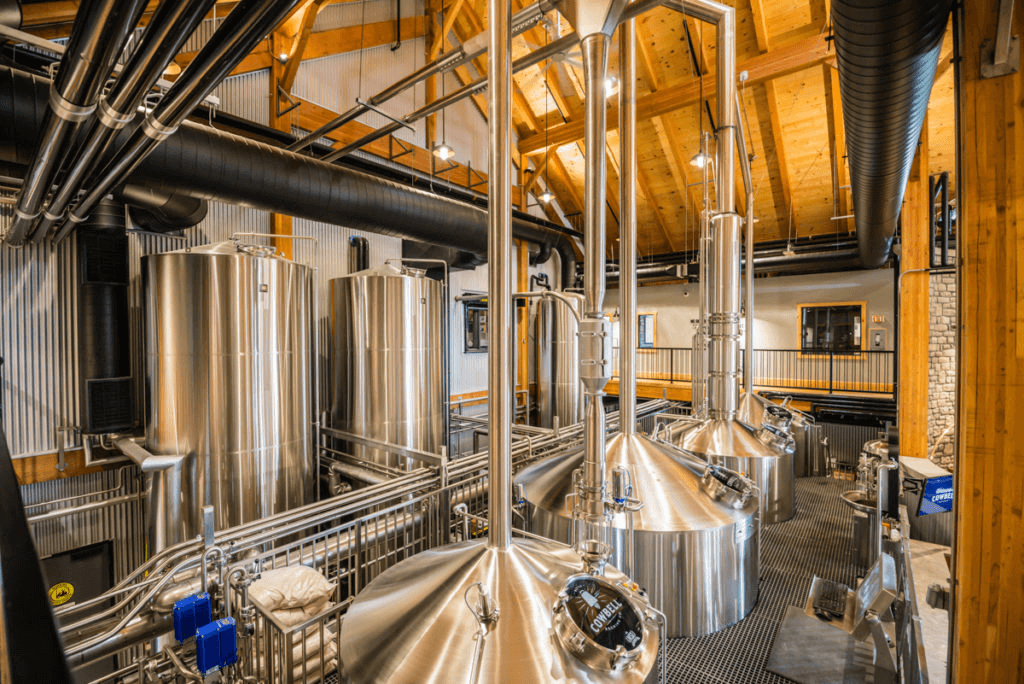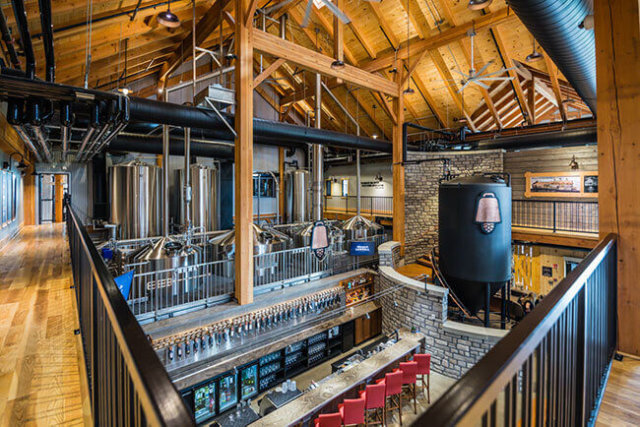-
Headquarters -
40035 Blyth Road, Blyth, ON N0M 1H0
-
Year established -
2017
-
NAICS -
312120 - Breweries
-
Major expansions -
2018
-
Employees -
170
-
Exports -
N/A
-
Download -
Cowbell Brewing
Cowbell is a destination craft brewery, which features a full restaurant, several event spaces, and the Cowbell General Store. It is the first carbon-neutral brewery in North America and the first closed-loop brewery in the world.
There is no shortage of excellent craft beer in Ontario. Trillium research has identified well over 300 breweries in Ontario – most of which were established in the past decade. With so much competition, it can be difficult for new breweries to successfully break into the market. Yet, the Cowbell Brewing Company (Cowbell) of Blyth, Ontario has managed to do just that. With a state-of-the-art production facility, an ambitious executive team, and a strong commitment to community values, Cowbell has positioned itself as one of Ontario’s rising stars in destination craft brewing.
Cowbell’s Founder and CEO, Steven Sparling, originally entered the business world in the propane industry. Steven’s father founded Sparling’s Propane, one of Canada’s largest propane retailers. When his father retired, Steven took over leadership of the business, and in 2013, he sold it to Parkland Fuel Corporation. Two years later, the Sparling family decided to pursue a business proposal to open a brewery in Blyth to capitalize on the rising popularity of craft beer. Steven’s son, Grant Sparling, attended a brewery-operations training program in the United Kingdom to learn about the craft beer production process. In August 2017, Cowbell officially began production.
Cowbell is a brewery with many “firsts” under its belt: it is the first carbon-neutral brewery in North America, the first brewery to use rectification boil technology in North America, and the first closed-loop brewery in the world, among other achievements. Many of these titles are the result of the Sparling family’s commitment to socially responsible brewing. As a closed-loop brewery, Cowbell puts no strain on Blyth’s municipal sanitary services. The company supplies 100 percent of its water from an on-site well and treats all wastewater through its own effluent management system. To further offset its carbon emissions, Cowbell runs an on-site reforestation project in partnership with the Maitland Valley Conservation Authority, which has planted 17,000 trees to date.
Thanks to its ongoing commitment to sustainability, Cowbell is at the forefront of brewing innovation and efficiency. All of its equipment is brand new and thus more efficient than the industry average. While brewers typically require upwards of 10 litres of water to create one litre of beer, Cowbell uses an average of just 3.4 litres of water per litre of beer. The company’s high-efficiency equipment also lowers its production costs and reduces its environmental impact. Cowbell stays on top of the newest advances in global brewing technology and techniques by being an active member of several industry networks, having formed many mutually beneficial relationships with other leading brewers. The company recently hosted a data analytics team from a U.S.-based brewery that was eager to share its data analytic techniques to improve Cowbell’s production and benchmarking efficiency.
Beyond production sustainability, Cowbell also emphasizes social sustainability, which is characterized by the brewery’s simple mantra: “Do the right thing.” The firm hosts many fundraisers and initiatives to benefit the surrounding community, such as the Greener Pastures Community Fund, a vehicle through which Cowbell donates 5 cents from each can or pint of beer sold to the four children’s hospitals across Ontario. To date, this initiative has led to over $350,000 in donations.
Cowbell has seven main beers that are brewed and sold year-round, as well as a variety of seasonal and limited-batch products. Grant expects these seven beer lines to comprise the company’s primary source of growth going forward—as opposed to introducing additional permanent product lines—but he raises the possibility of adding custom individual brewing and a whisky distillery in the future. Cowbell only distributes its products within Ontario, as it is currently not cost-effective to export to other provinces or countries.
Grant recognizes that in order to be a successful brewery and build market share, Cowbell must offer more than just good beer. He believes that tasty beer can be found anywhere, but it is Cowbell’s great customer experience and sustainable ideals that set it apart.
Grant describes Cowbell as a “destination brewery,” designed to attract attention from locals and craft beer enthusiasts alike. The 26,000-square-foot facility features a traditional timber frame barn design that is neatly juxtaposed with modern glass and stainless steel fixtures. Cowbell leverages its rustic aesthetic with several rentable indoor event spaces, typically used for weddings, corporate events, and private parties. In addition, the brewery features an on-site, locally sourced restaurant, bar, and general store. With the combination of these amenities, Cowbell has managed to attract approximately 300,000 guests to the brewery in the two years that it has been open.
To facilitate its entry into the market, Cowbell has taken advantage of a strong promotion and events team that promotes its products across Ontario. With an in-house photographer and videographer, the company has a strong digital presence that is driving the development of an e-commerce component to the business. One aim is to build strong repeat sales through subscription-based bulk beer sales that are shipped directly to the buyer’s house. Additionally, Cowbell hosts and sponsors numerous events across the province.
“The goal is to make the location a year-round tourism destination through a number of avenues,” Steven explains to a local newspaper.
Cowbell’s operators are determined to maintain the company’s current momentum and continue to grow the business. They are looking to expand Cowbell’s event space with the construction of an outdoor amphitheatre in the adjacent lot to be used for large-scale events. Moreover, to further Cowbell’s image as a destination brewery, they are developing a “rural tourism” initiative which aims to promote the brewery as a go-to location for those wanting to experience the Southwestern Ontario countryside. Finally, Cowbell has recently acquired a large municipal building beside the brewery, with plans for it to house all packaging, storage, and logistics functions; this will free up room to expand the production capacity for Cowbell’s most popular products.
For more information about Cowbell Brewing, visit their website.
Published: November 25, 2019
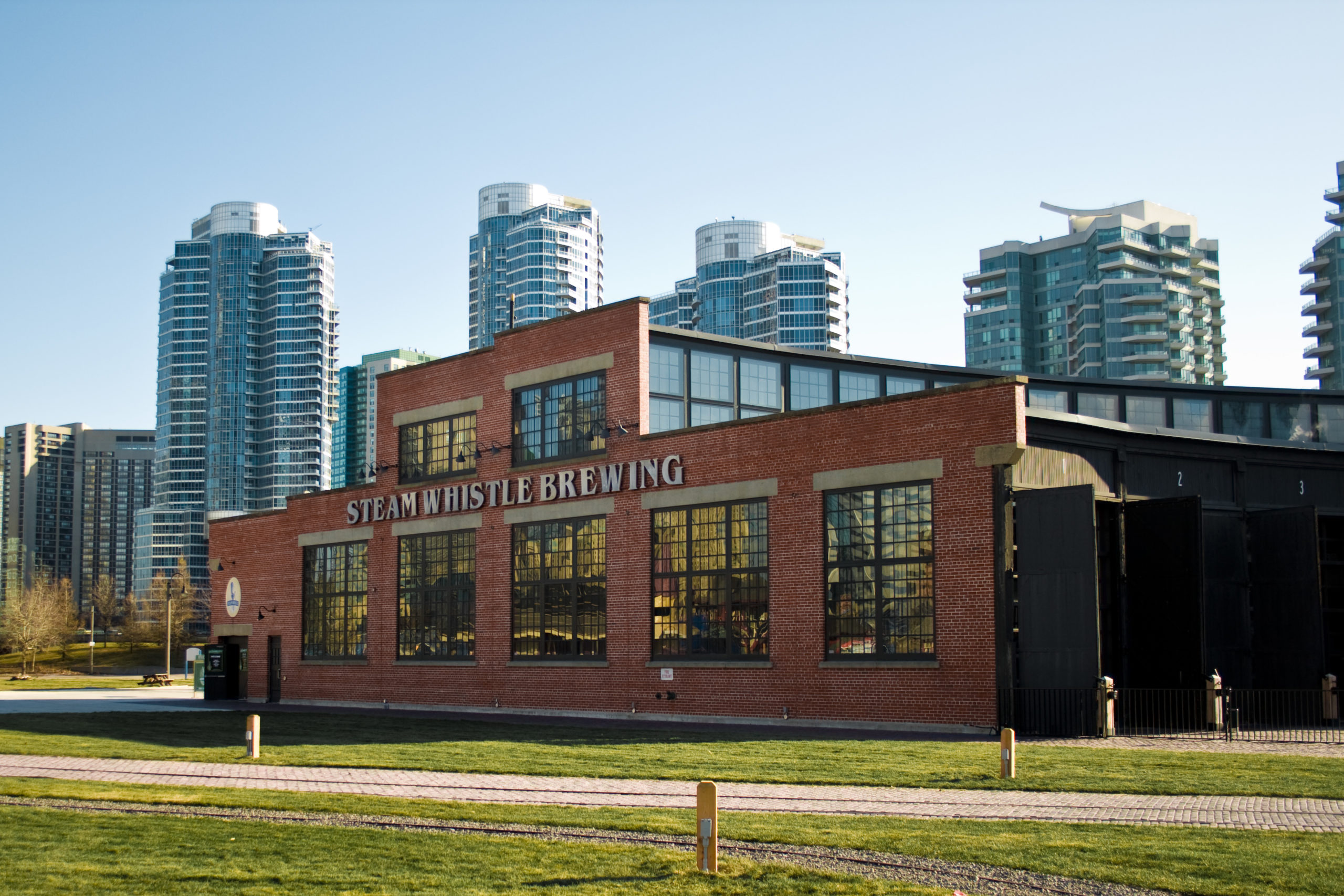
Steam Whistle Brewing
Over the past two decades, Steam Whistle Brewing has grown from a dream hatched by the fireside into one of Canada’s largest independent breweries.
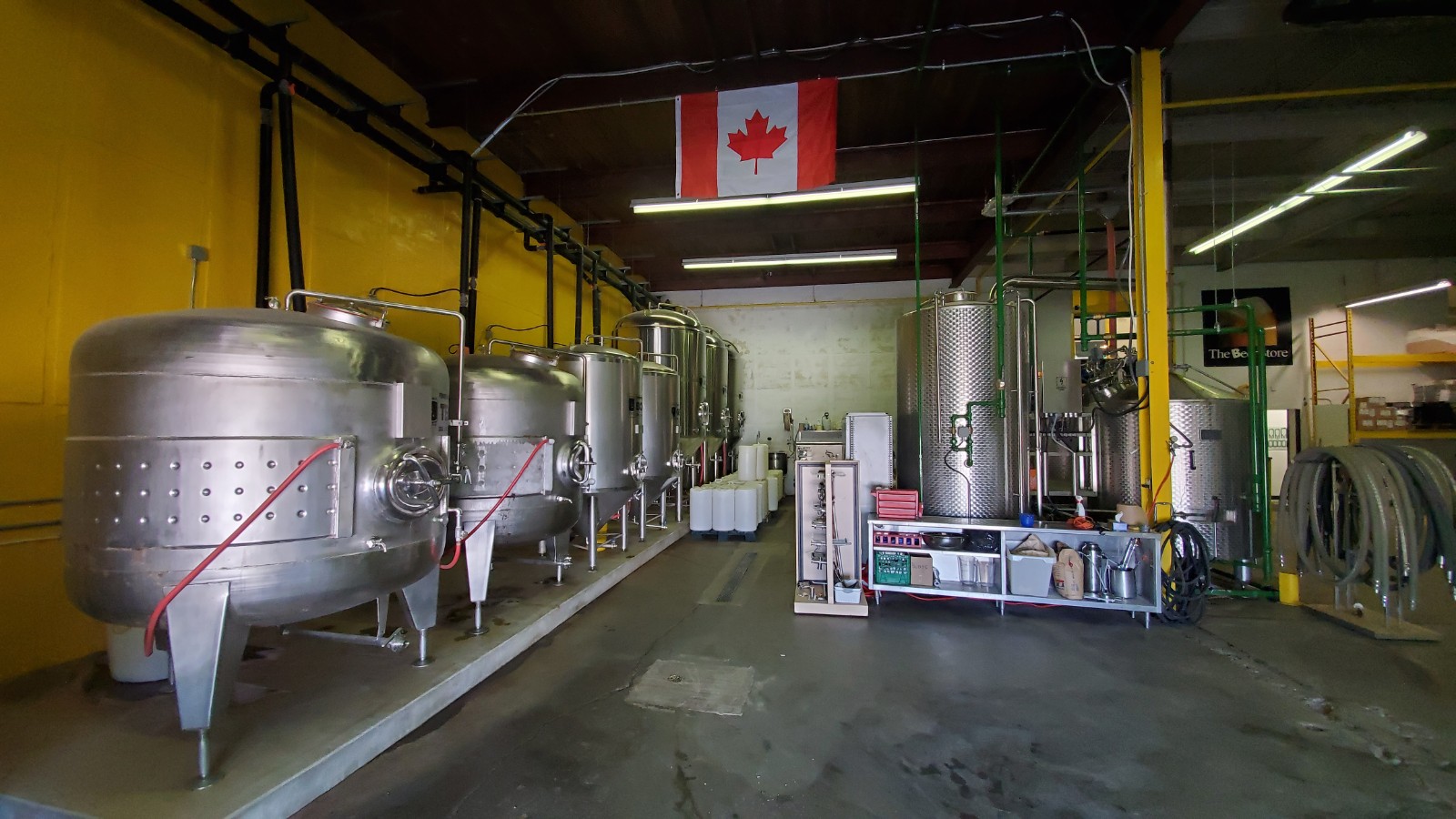
All or Nothing Brewhouse
An important member of the business community in Oshawa, Ontario, All or Nothing Brewhouse retooled their distilling equipment to meet the anticipated local demand for hand sanitizer as a result of COVID-19.
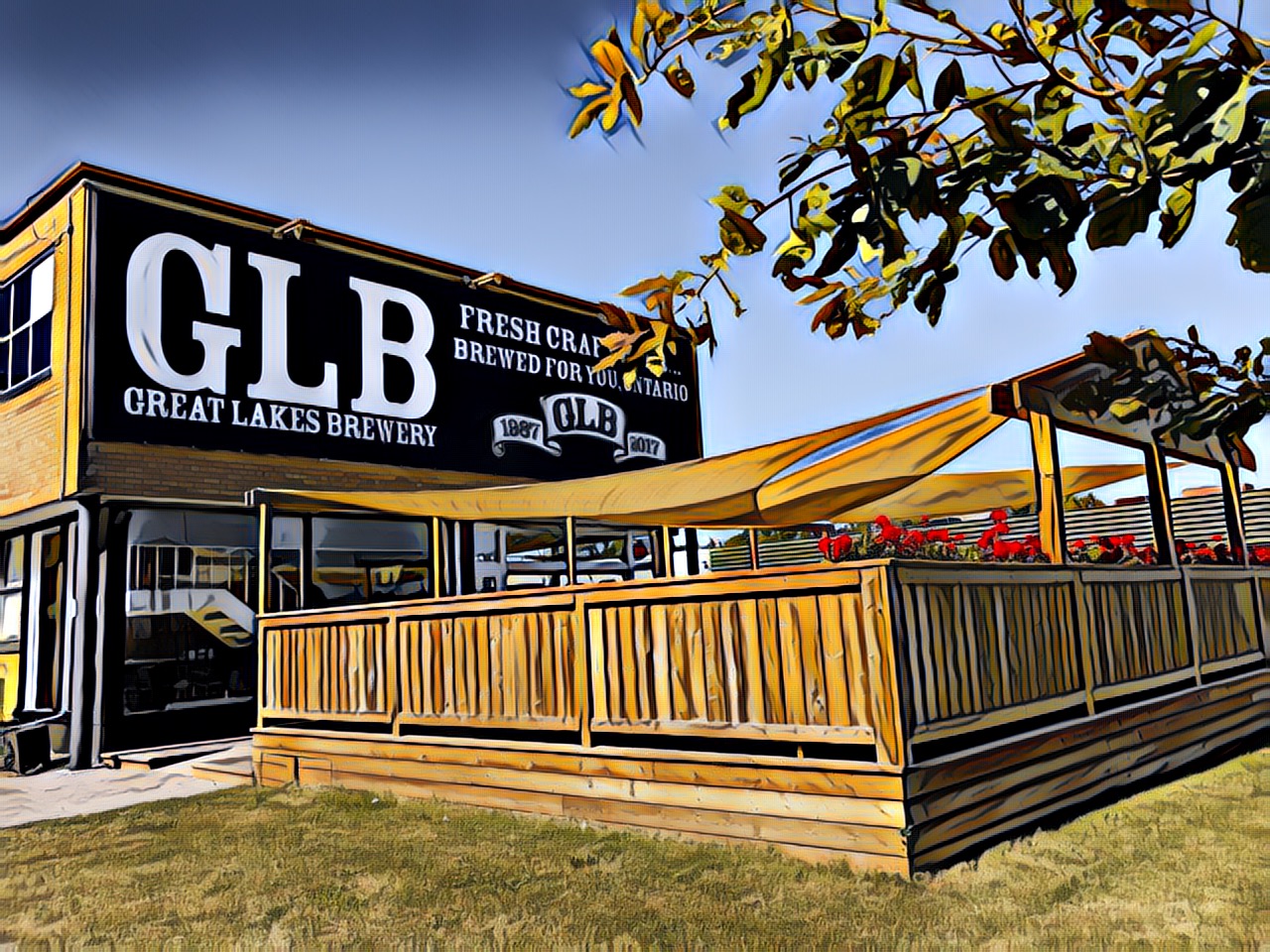
Great Lakes Brewery
Located in Etobicoke, Ontario, Great Lakes Brewery holds the title of Ontario’s oldest family-owned brewery. Since the brewery was founded in 1987, it has developed multiple well-known flagship brands and established a reputation for innovation.
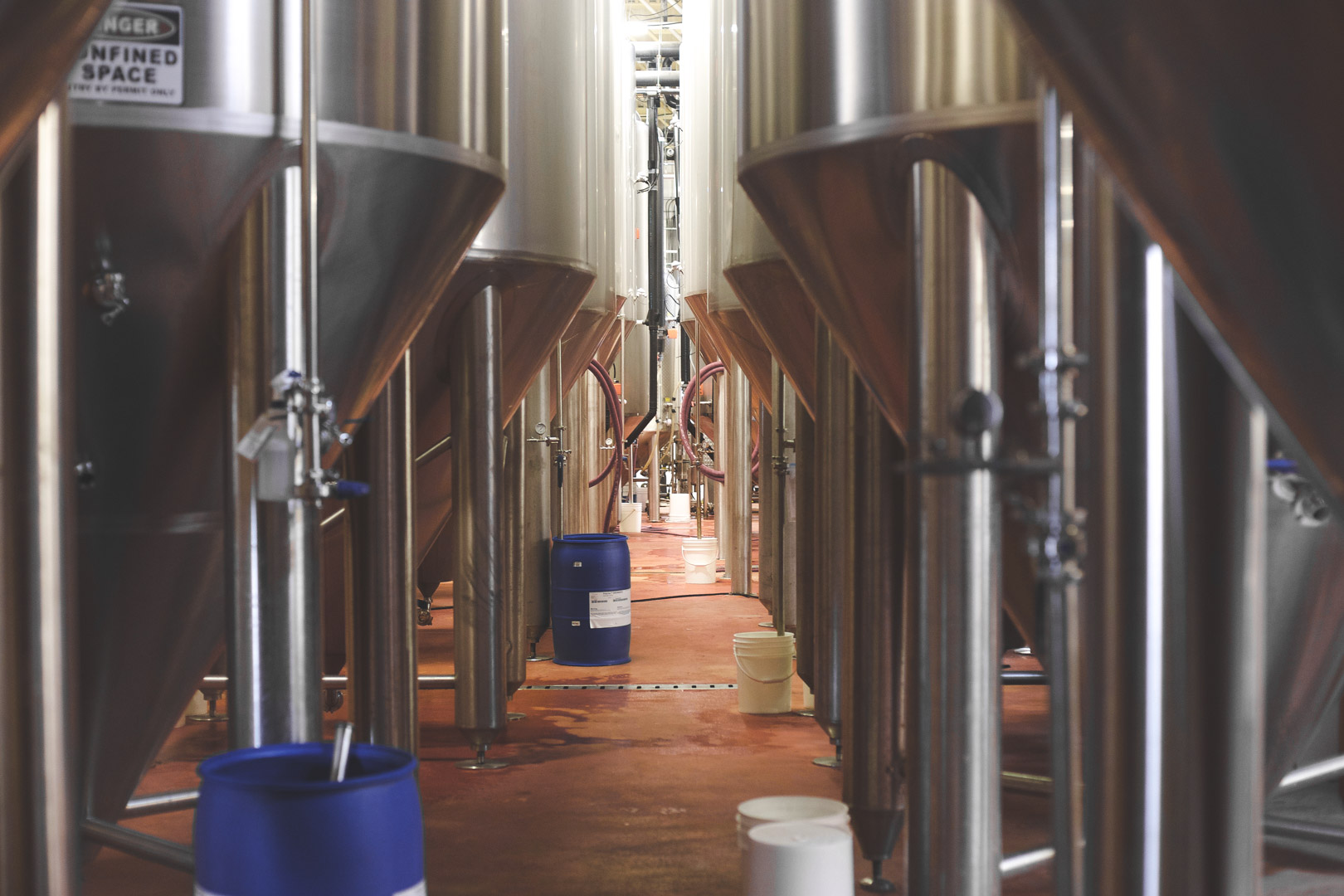
Muskoka Brewery
Founded in 1996 in the heart of Ontario’s cottage country, Muskoka Brewery is one of the largest and most well-established craft brewers in Ontario, exemplifying the important relationships craft brewers have with local communities.

Hiram Walker & Sons
Hiram Walker & Sons is Ontario’s sole “grain-to-glass” distillery. The company produces Vodka, Rum and Canadian Whisky.
